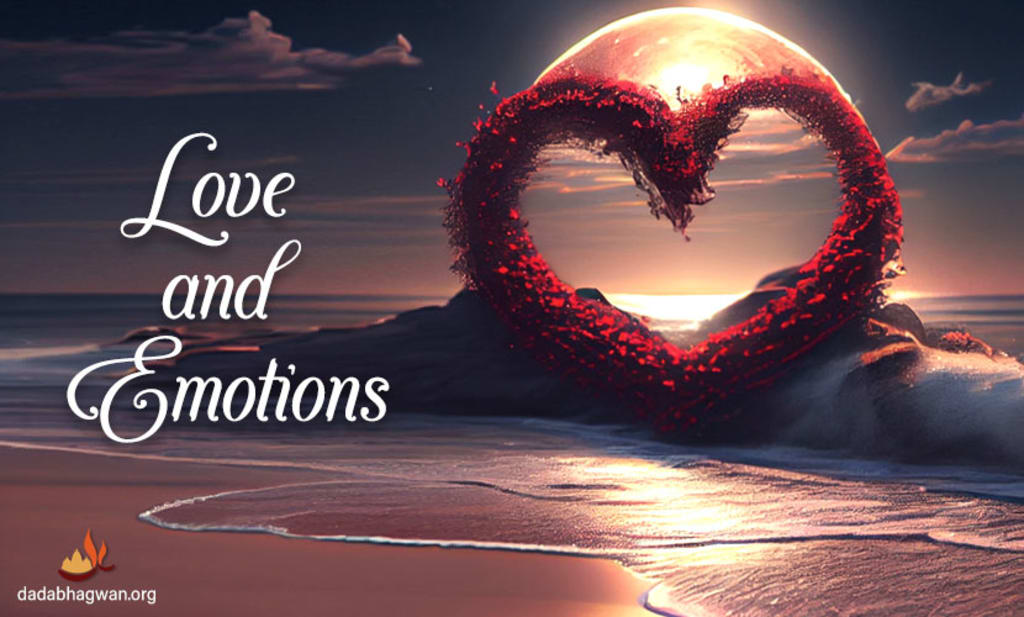
Love is a set of emotions and behaviors characterized by intimacy, passion, and commitment. It involves care, closeness, protectiveness, attraction, affection, and trust.
Love can vary in intensity and can change over time. It is associated with a range of positive emotions, including happiness, excitement, life satisfaction, and euphoria, but it can also result in negative emotions such as jealousy and stress.
When it comes to love, some people would say it is one of the most important human emotions. Yet despite being one of the most studied behaviors, it is still the least understood. For example, researchers debate whether love is a biological or cultural phenomenon.
Love is most likely influenced by both biology and culture. Although hormones and biology are important, the way we express and experience love is also influenced by our personal conceptions of love.
Types of Love
Not all forms of love are the same, and psychologists have identified a number of different types of love that people may experience.1
These types of love include:
Friendship: This type of love involves liking someone and sharing a certain degree of intimacy.
Infatuation: This is a form of love that often involves intense feelings of attraction without a sense of commitment; it often takes place early in a relationship and may deepen into a more lasting love.
Passionate love: This type of love is marked by intense feelings of longing and attraction; it often involves an idealization of the other person and a need to maintain constant physical closeness.
Compassionate/companionate love: This form of love is marked by trust, affection, intimacy, and commitment.
Unrequited love: This form of love happens when one person loves another who does not return those feelings.
Twin Flame: Soulmate's Lesser-Known Cousin
Robert Sternberg's Triangular Theory of Love
Specifically, psychologist Robert Sternberg developed his well-regarded triangular theory of love in the early 1980s.4 Much research has built upon his work and demonstrated its universality across cultures.4
Sternberg broke love into three components—intimacy, passion, and commitment—that interact to produce seven types of love.
Sternberg's Triangular Theory of Love
Type of Love=Components
Friendship=Intimacy
Infatuation= Passion
Empty= Commitment
Romantic= Intimacy, passion
Companionate= Intimacy
Fatuous= Commitment, passion
Consummate= Intimacy, compassion, commitment
Is Love an Emotion?
Psychologists, sociologists, and researchers disagree somewhat on the characterization of love. Many say it's not an emotion in the way we typically understand them, but an essential physiological drive. Psychologist and biologist Enrique Burunat says, "Love is a physiological motivation such as hunger, thirst, sleep, and sex drive."5 Conversely, the American Psychological Association defines it as "a complex emotion."6 Still others draw a distinction between primary and secondary emotions and put love in the latter category, maintaining that it derives from a mix of primary emotions.
Is Love Influenced By Biology or Culture?
Some researchers suggest that love is a basic human emotion just like happiness or anger, while others believe that it is a cultural phenomenon that arises partly due to social pressures and expectations.
Research has found that romantic love exists in all cultures, which suggests that love has a strong biological component. It is a part of human nature to seek out and find love. However, culture can significantly affect how individuals think about, experience, and display romantic love
How to Show Love to Another Person
There is no single way to practice love. Every relationship is unique, and each person brings their own history and needs. Some things that you can do to show love to the people you care about include:
Be willing to be vulnerable.
Be willing to forgive.
Do your best, and be willing to apologize when you make mistakes.
Let them know that you care.
Listen to what they have to say.
Prioritize spending time with the other person.
Reciprocate loving gestures and acts of kindness.
Recognize and acknowledge their good qualities.
Share things about yourself.
Show affection.
Make it unconditional.
How Love Impacts Your Mental Health
Love, attachment, and affection have an important impact on well-being and quality of life. Loving relationships have been linked to:
Lower risk of heart disease
Decreased risk of dying after a heart attack
Better health habits
Increased longevity
Lower stress levels
Less depression
Lower risk of diabetes
Tips for Cultivating Love
Lasting relationships are marked by deep levels of trust, commitment, and intimacy. Some things that you can do to help cultivate loving relationships include:
Try loving-kindness meditation. Loving-kindness meditation (LKM) is a technique often used to promote self-acceptance and reduce stress, but it has also been shown to promote a variety of positive emotions and improve interpersonal relationships.11 LKM involves meditating while thinking about a person you love or care about, concentrating on warm feelings and your desire for their well-being and happiness.
Communicate. Everyone's needs are different. The best way to ensure that your needs and your loved one's needs are met is to talk about them. Helping another person feel loved involves communicating that love to them through words and deeds. Some ways to do this include showing that you care, making them feel special, telling them they are loved, and doing things for them.
Tackle conflict in a healthy way. Never arguing is not necessarily a sign of a healthy relationship—more often than not, it means that people are avoiding an issue rather than discussing it. Rather than avoid conflict, focus on hashing out issues in ways that are healthy in order to move a relationship forward in a positive way.
Negative Emotions Associated With Love
As Shakespeare said, the course of love never did run smooth. No relationship is perfect, so there will always be problems, conflicts, misunderstandings, and disappointments that can lead to distress or heartbreak.
So while love is associated with a host of positive emotions, it can also be accompanied by a number of negative feelings as well.
Some of the potential pitfalls of experiencing love include:
Anxiety
Depression
Increased stress
Jealousy
Obsessiveness
Possessiveness
Sadness
While people are bound to experience some negative emotions associated with love, it can become problematic if those negative feelings outweigh the positive or if they start to interfere with either person's ability to function normally. Relationship counseling can be helpful in situations where couples need help coping with miscommunication, stress, or emotional issues.
History of Love
Only fairly recently has love become the subject of science. In the past, the study of love was left to "the creative writer to depict for us the necessary conditions for loving," according to Sigmund Freud. "In consequence, it becomes inevitable that science should concern herself with the same materials whose treatment by artists has given enjoyment to mankind for thousands of years," he added.
Research on love has grown tremendously since Freud's remarks. But early explorations into the nature and reasons for love drew considerable criticism. During the 1970s, U.S. Senator William Proxmire railed against researchers who were studying love and derided the work as a waste of taxpayer dollars.
Despite early resistance, research has revealed the importance of love in both child development and adult health.
Love Is Not an Emotion
Emotions ebb and flow while true love is a constant, uninterrupted stream
How can love be an emotion? Emotions are fleeting; they come and go, depending on circumstances, incidents and moods. Love is so much more than that. It is a way of being. It is a life energy that flows constantly. Love is not influenced by external circumstances and is defined by the depth and expanse of your own being.
Love can be a discipline, a duty, a drive, a mission, an act of will, a prayer or worship… In the wrong hands, love can also be a tool of blackmail. But above all, love is that extra muscle or limb which God has given us to help manage when all else fails. Love helps us rise above ourselves. The objects of our love may change; love remains constant.
When you truly love someone, it is an acceptance of him or her into your very being. And that can work the other way round as well – when you truly accept someone, you learn to love him or her. Feelings such as lust, passion, affection, helplessness, desire or yearning may ebb and flow – love flows unhindered.
Empathy pioneer Karla McLaren says in The Language of Emotions, “When an emotion is healthy, it arises only when it’s needed … it recedes willingly once it has addressed an issue. When love is healthy, it does none of these things…Love is not an emotion; it doesn’t behave the way emotions do. Real love is in a category of its own.”
Sometimes we imagine ourselves in love, projecting our emotions onto someone we are not really deeply connected with. In such a game, desire, lust, moods, passion and even affection can all play a role, but the real thing is missing. And when reality raises its head, we realize that love was never a part of this game playing.
So how do you know if your love is true? True love has a transformative power and makes us feel stronger, more powerful, and deepens us as individuals. When we love someone, it gives an extra edge and a keen sensitivity to our senses, allowing us to experience life and the world around in a much deeper and more meaningful manner. Love means sharing; no self-indulgent, selfish person can love another deeply. Love means an onward movement. Luxuriating in a happy love or even wallowing in self-pity after your heart is broken is not the purpose of love in our lives. Either way you move on – if happy, you spread the happiness of your love to touch others less fortunate. If sad, you assimilate your lesson and move on…
In the words of the Buddhist philosopher Daisaku Ikeda, “Real marriage is when you have been married for twenty-five years and feel an even deeper love than you did when you first met. Love deepens. Love that does not is merely on the level of simple likes and dislikes.”
Love is within us. And the way we love another is a projection of the way we feel about ourselves. True love does not stop at loving one. It takes others into its fold. We love not just our romantic or marital partners, but also our parents, siblings, children, friends and pets. It emanates from within us and reaches out to encompass our dear ones. If you have truly loved someone with all your heart, no matter what they do, some part of you always remains connected, concerned and loving.
Gulzar’s poetic definition of love for the film Khamoshi is beautiful. Love is an experience that can be felt by the soul and should not be bound by nomenclatures or definitions, says the inimitable poet. He talks of the invincibility of love and the impossibility of binding its natural flow …
About the Creator
Rocky
HI guys i am Rocky i am not a professional writter but little bit know about writting so if any mistake please do not care otherwise i do the best





Comments
There are no comments for this story
Be the first to respond and start the conversation.